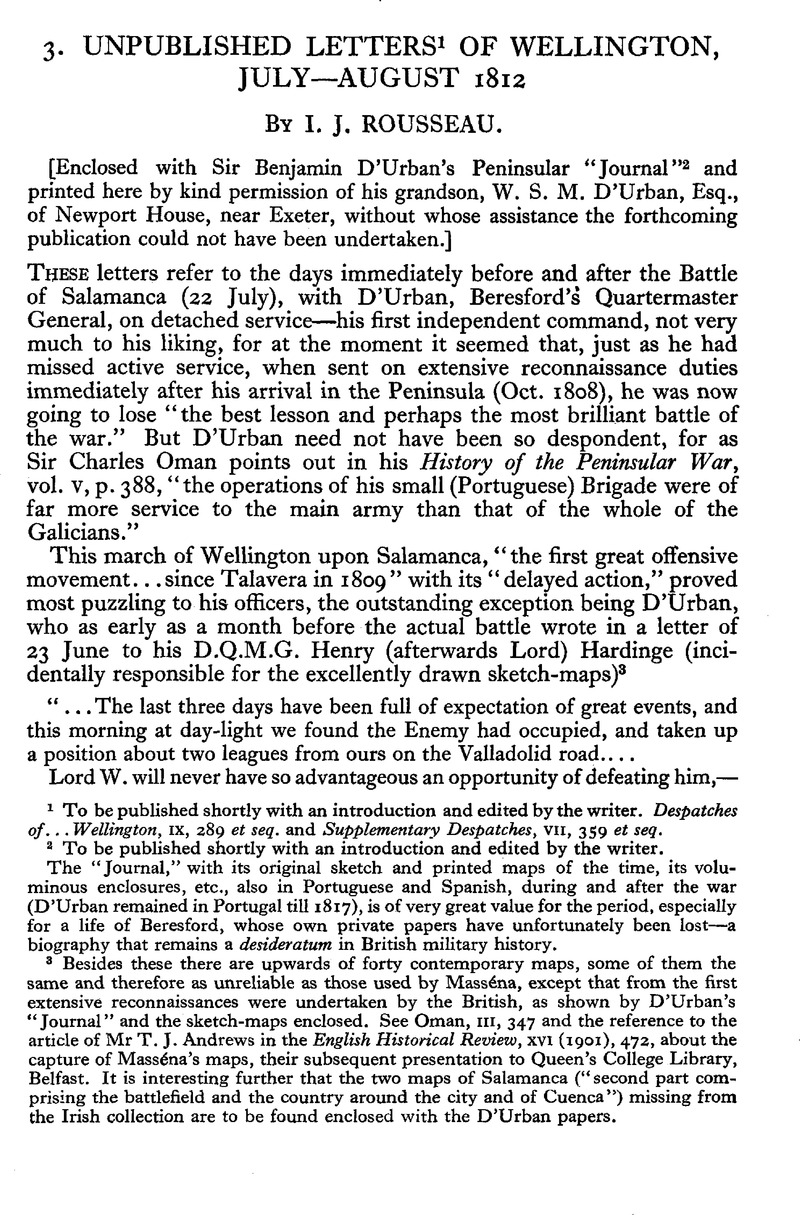No CrossRef data available.
Article contents
3. Unpublished Letters1 of Wellington, July–August 1812
Published online by Cambridge University Press: 20 December 2011
Abstract

- Type
- Notes and Communications
- Information
- Copyright
- Copyright © Cambridge University Press 1929
References
page 96 note 2 To be published shortly with an introduction and edited by the writer. The “Journal,” with its original sketch and printed maps of the time, its voluminous enclosures, etc., also in Portuguese and Spanish, during and after the war (D'Urban remained in Portugal till 1817), is of very great value for the period, especially for a life of Beresford, whose own private papers have unfortunately been lost—a biography that remains a desideratum in British military history.
page 96 note 3 Besides these there are upwards of forty contemporary maps, some of them the same and therefore as unreliable as those used by Massena, except that from the first extensive reconnaissances were undertaken by the British, as shown by D'Urban's “Journal” and the sketch-maps enclosed. See Oman, in, 347 and the reference to the article of Mr T. J. Andrews in the English Historical Review, xvi (1901), 472, about the capture of Mass's maps, their subsequent presentation to Queen's College Library, Belfast. It is interesting further that the two maps of Salamanca (“second part comprising the battlefield and the country around the city and of Cuenca”) missing from the Irish collection are to be found enclosed with the D'Urban papers.
page 98 note 1 D'Urban reports from Olmedo, 30 July, 1 p.m., the receipt of No. 2 and continues: “I know from several peasants that the enemy was rather in expectation of a movement upon the part of your Lordship to attack him today….
“Some accounts make the King's force amount to 14,000 Men. The more general opinion only to 11, or 12,000; (what may be the strength of the Garrison of Madrid to which Pereira alludes, I don't know, your Lordship of course does.)


